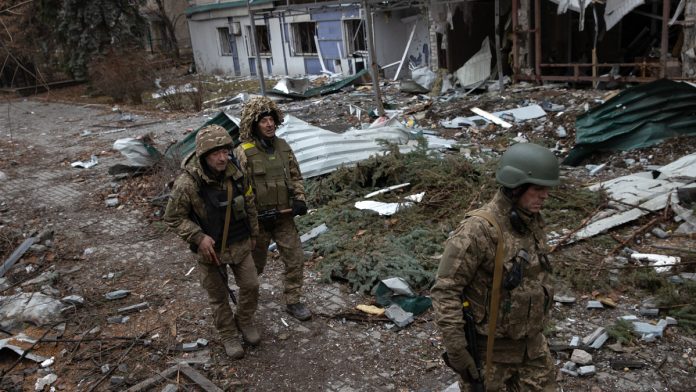Dr. Syeda Bushra Batool
The last year is marked by wars, in Eastern Europe and the Middle East, and political confrontation between the West and Russia with a new contender China rising on the stage, marking the beginning of great power competition. For 28 months into the war, Russia and Ukraine are yet to come to terms to negotiate a settlement for the future of Ukraine.
The consensus is difficult to reach. Putin sticks to the view that Russia would not surrender in Ukraine until the latter surrenders entirely from the four regions claimed by the former and drop the idea of joining the North Atlantic Treaty Organization (NATO), which Ukraine dismissed considering it a ‘complete sham’. Apparently, it is a war between Russia and Ukraine; however, the larger picture explains much more details of great power competition.
Ukraine enjoys huge support, economic and military, to continue its war with Russia, whereas, Russia is also trying to secure defense partnerships with like-minded countries. The recent strategic partnership agreement with North Korea and cooperation agreement with Vietnam as an attempt to pivot to Asia, in addition to the unwavering support of China, signifies that Russia is well-equipped to counter any aggression.
In a recent G-7 meeting, leaders of the world’s seven largest economies gathered to discuss important economic and political issues; the war in Ukraine was a primary agenda. Russia was not invited to the summit and China opted not to attend it due to its reservations related to the absence of Russian representation.
A deal is outlined in the G-7 meeting to provide $50 billion of loans for Ukraine to fight its existential war with Russia. This does not end here, the multi-year loan will be produced using interest generated from the Russian assets in Western banks and in the European Union, approximately $300 billion, which were frozen after its Ukrainian invasion in 2022. The purpose is to ratchet up economic and political pressure on Russia to reconsider its military engagements in Ukraine while funding Ukraine’s military operations and reconstruction efforts.
This was met with a strong response from Russia considering it a ‘theft’ of Russia’s sovereign assets. Russian foreign ministry spokeswoman Maria Zakharova while considering the act as ‘criminal’ added that Moscow’s response would be very painful for the European Union.
In such a scenario, both Russia and Ukraine are trying to secure security arrangements. Ukrainian president Volodymyr Zelenskiy signed a new, 10-year security accord with U.S. President Joe Biden, the value of which is not stated. Additionally, US Congress has also approved $61bn in military aid for Ukraine this year. This deal followed a 10-year security accord with Japan when Tokyo committed to provide $4.5b to Kyiv this year, to serve its military, financial, and humanitarian needs.
As a countermeasure, Russian President Vladimir Putin signed a comprehensive strategic partnership agreement with North Korean leader Kim Jong Un on Wednesday, which, he said, included ‘mutual assistance in the event of aggression’. This refers to the military assistance between Moscow and Pyongyang if either is attacked.
This development could destabilize the Korean Peninsula and extend the instability and political chaos further, with the possibility of Russia providing weapons to North Korea. Additionally, the US and its allies are also concerned about a possible arms supply by North Korea to Russia, which the latter badly needs, to continue its military engagements in Ukraine, hence spreading the threat posed by Kim’s nuclear weapons and missile program even further.
G-7 countries are skeptical of the growing ties between the two countries especially in the wake of China’s indirect support to the Russian war machine, considering it as enabling Russia to maintain its illegal war in Ukraine. In the context of new power competition, the equation affirms the US in its rhetoric to prove to European nations that China is actively participating in the Ukraine war in supporting Russia, thus directly harming Europe’s security. This might also make the US ways smoother to isolate China, along with Russia, on the global stage.
Ukraine and Russia have pursued international military agreements as their forces remained largely stalemated during the past few days. On one hand, Ukrainian leader Zelenskiy is trying to convince the world of their support in the Ukraine war with Russia, and on the other, Russia is giving signals to the US and Europeans that it has the right to arm the US adversaries around the world and setting a stage to revolt, if need be.
The tug of war between Russia and Ukraine is likely to continue at least in the near future with both contenders securing their political and security arrangements from other countries around, consolidating their defense capabilities, and making sure to imbalance the power equation.
In case the conflict escalates, it is going to destabilize the whole of Europe and Asia, and the international community would have to bear to brunt of it, especially at such a time when the Middle Eastern crisis has already reached a pinnacle.
The author is a Research officer at Rabita Forum International (RFI)







